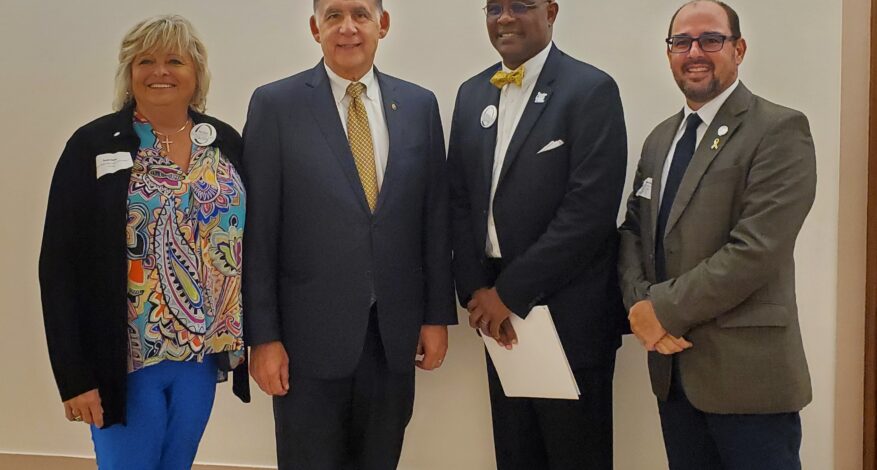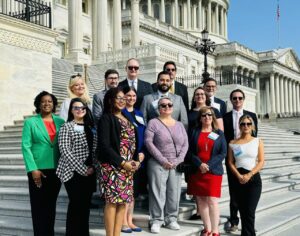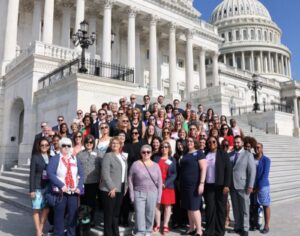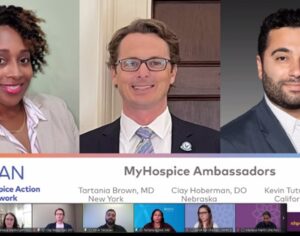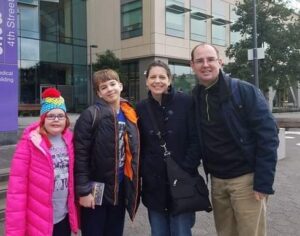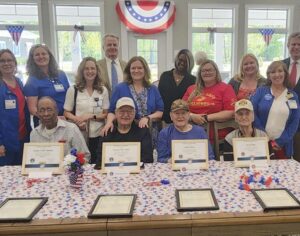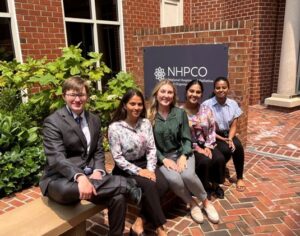The Choice to Keep Running: Advocating with Grief (2 of 2)
“It’s hard to find meaning when your daughter dies,” Trey Gibson states.
In September 2016, the Gibson family received the devastating news that their 9-year-old daughter, Emilie, had Diffuse Intrinsic Pontine Glioma (DIPG), a terminal pediatric cancer. A year later, Emilie died from her illness.
After an exhausting and terrible year, including this tragic loss, the Gibson family had to move forward. But how?
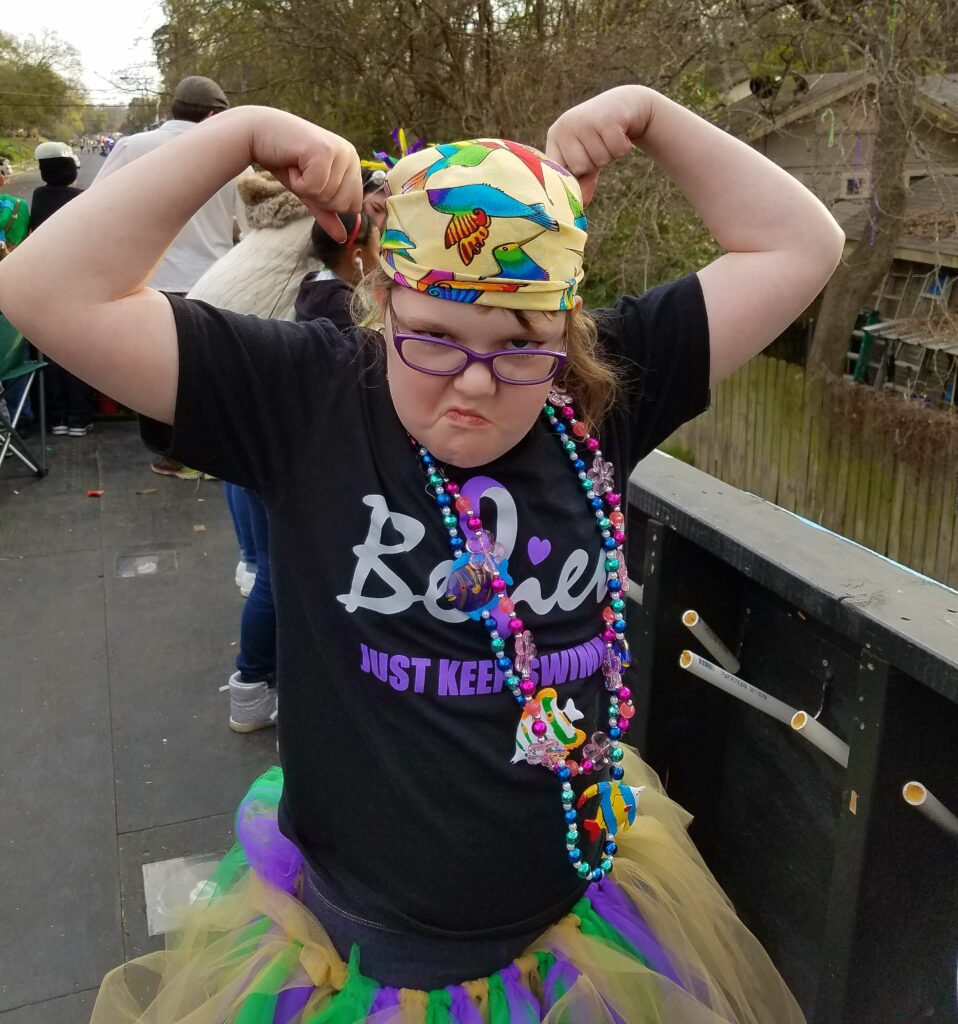
As an avid debate couch and having previously been involved in politics, Trey saw advocacy for childhood cancer and related issues as a potential path for finding purpose.
Shortly after Emilie’s passing, Trey attended a townhall discussion held by the American Cancer Society where his Senator, Bill Cassidy, was a featured speaker. Trey didn’t miss the opportunity to make Emilie’s story heard.
“When the Senator finished talking and asked if there were any questions, my hand shot up,” Trey recalls. He asked Senator Cassidy about the low percentage of federal cancer research funds spent on childhood cancer. What resulted was a “great exchange” between Senator Cassidy and Trey, in which the Senator resolved to contact the National Institutes of Health himself to learn more about the issue.
The experience made Trey feel that he was being listened to. Since 2018, he’s continued to take up opportunities to speak with legislative offices at the state and federal level, including attending Hill Days in Washington, DC with organizations like the American Cancer Society and the Patient Quality of Life Coalition. He’s been able to speak directly with his Representative on multiple occasions.
“Having your representative take the time to meet with you brings that added excitement and appreciation.”
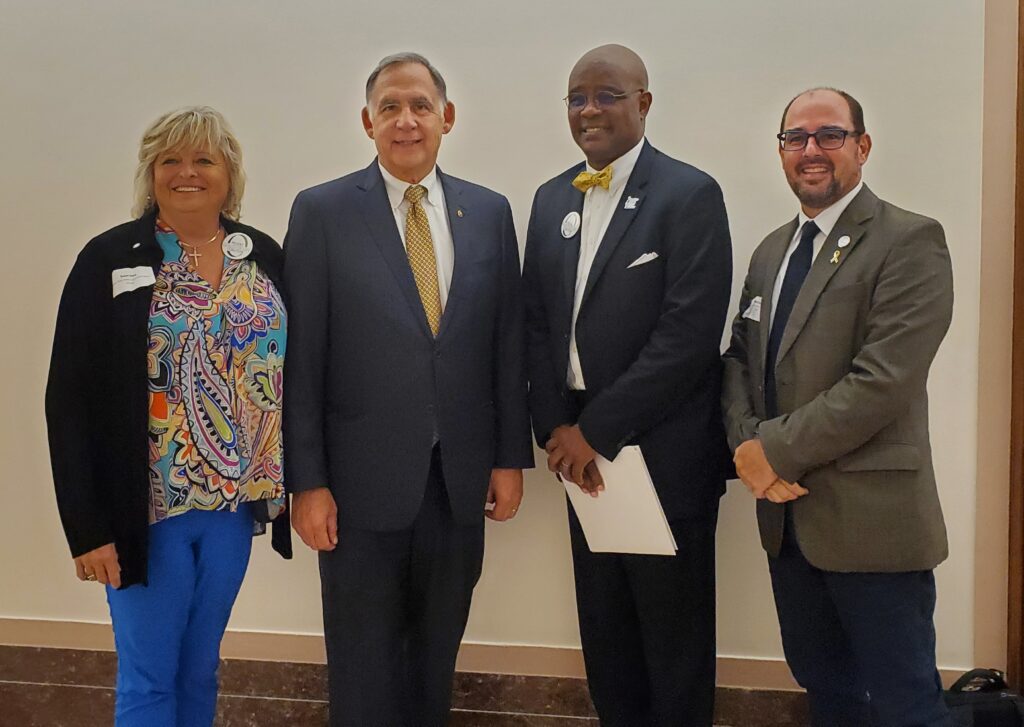
For those who have experienced loss and are new to advocacy and legislative visits, Trey gave the following advice:
Be Yourself
Advocates being themselves is something that Trey emphasizes. “Letting the people you are meeting with see that you’re a normal person is important. Nothing you’re going to say is wrong. You just tell your story.”
Trey encourages advocates to not shy away from showing emotion when telling their stories.
“It’s okay to cry. Bring some tissues,” he says. “It’s hard for me to tell Emilie’s story without my nose twitching. I miss her terribly, and that’s okay.” He explains that when advocates show emotion, even in meetings, it shows that they care about the issue.
It’s Easier Than You Think
Trey acknowledges that speaking with a legislator or their staff might be intimidating. “A lot of people think it’s a scary scenario but they’re people too, they’re people just like you.”
Meetings with legislative offices are easier than you might think, Trey says, particularly if you practice. “If you’re nervous, try to figure out what your story is going to be. Narrow your story to what’s important to the event or the ask. Preparation is important, getting to that three-minute pitch.”
It’s a team effort.
Trey encourages advocates at Hill Day events to be comfortable relying on other advocates and the hosting organization. “Communicate with someone who is helping you. Let them support you and be the expert. I’ve always walked in with some awesome people that have been holding our hands. We give the constituent story, and experts come in with the big sell. Having that team effort helps.”
Taking the opportunity to meet with other advocates is something Trey also recommends. Not just as a part of growing as an advocate, but as a part of the loss journey. “Nobody knows what you’ve experienced except for the people who have experienced it. There is such a bond there. It’s an opportunity to establish a community,” Trey says. “Establishing those interpersonal relationships has had such a wonderful impact on me.”
Wear comfortable Shoes
On a more pragmatic note for Hill Days, Trey stresses: wear nice, comfortable shoes. For long days of walking the halls of Congress, comfort wins over style. “I’ve got some great, comfortable golf shoes—spikeless, of course—and walked into Senators’ offices in them,” Trey says.
There will be Challenges
Trey notes that attending Hill Days brings challenges, such as missing work, long distance travel, and being away from family. “I’m missing Mardi Gras and Valentine’s Day this year,” Trey said. He attended the 2024 Alliance for Childhood Cancer Action Days on February 13-14.
But in the end, it’s worth it. “We truly believe in this fight and we want things to be better for the next family, the next child.”
You Matter
For those who have experienced loss and are considering advocacy, Trey wants you to know three things:
“Know that you’re valued, your story’s important, and there will be people to help you along with way.”
This is part two of a two-part blog. To learn more about the Gibson family story and the policies that Trey advocates for, go to part one.
For more:
Sign up to be a HAN advocate today
Take action and support PCHETA
Find advocacy tips on our Toolkit page
Learn about HAN’s annual Hill Day in DC

